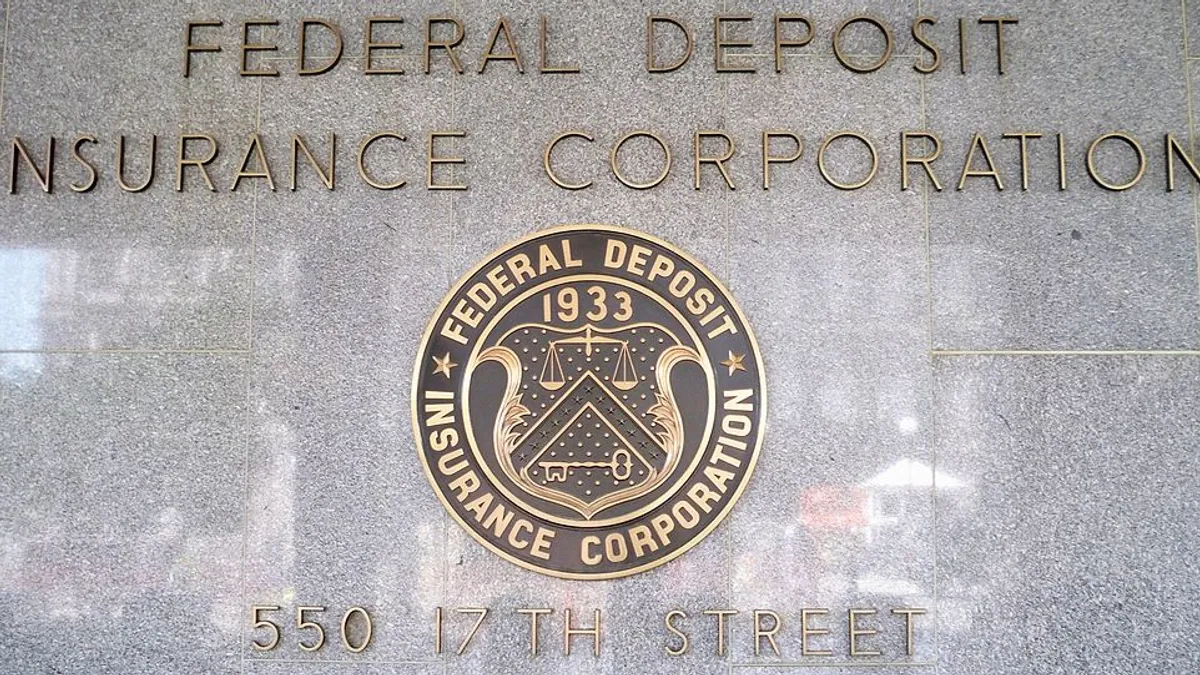Dive Brief:
- Thrivent Financial for Lutherans, which bills itself as a purpose-driven nonprofit financial services organization, applied last week for deposit insurance with the Federal Deposit Insurance Corp. (FDIC) as part of an effort to obtain an industrial loan company (ILC) charter.
- "Owning a bank would allow us to leverage our existing experience providing banking products and solutions that reflect our purposeful approach to finances, integrating them into modern, digital and holistic client experiences and channels that meet the needs of a broad range of consumers seeking financial clarity," David Royal, Thrivent Financial's executive vice president of asset management, told American Banker on Wednesday.
- Thrivent would be the second entity in the span of a week to take steps to get an ILC charter. San Francisco-based Brex, a fintech best known for offering banking services to startup businesses, applied Feb. 17.
Dive Insight:
A growing number of nonbanks, including General Motors Financial Company, investment company Edward Jones and Japanese e-commerce giant Rakuten, have applied for ILC charters over the past year. But the trend has sparked blowback from trade groups and lawmakers who say the charter allows companies to provide banking services while sidestepping Federal Reserve oversight.
The charter would let Thrivent Financial directly invest capital to add bank offerings, the company said. The bank would use a digital platform to offer services nationwide. Thrivent Financial already serves as a sponsor for a $763 million-asset credit union, American Banker reported.
"We're continuously exploring strategic options to invest in and build out our banking offerings in support of our commitment to our current and future clients," Royal told the publication.
The FDIC has received more than a dozen deposit insurance applications from proposed ILCs since 2012. Payments company Square and student loan servicer Nelnet were approved last March for ILC charters, the first such approvals in more than a decade.
The approvals prompted Sen. Sherrod Brown, D-OH, of the Senate Banking Committee, to accuse FDIC Chair Jelena McWilliams of shuffling corporate favors "through the side door" amid the pandemic.
"Just before the last crisis, regulators gutted financial rules and even considered letting megacorporations like Walmart own banks — and here we go again," he said in a statement.
Sen. John Kennedy, R-LA, introduced a bill in 2019 aimed at closing a "loophole" that exempts ILCs from the definition of a "bank" under the Bank Holding Company Act.
"The Rakutens and the Googles of the world shouldn't be able to circumvent the Fed," Kennedy said at the time. "If they're allowed to handle your banking services, they're going to turn into continents."
The ILC application process can sometimes turn lengthy. Rakuten has twice withdrawn and resubmitted its paperwork to the FDIC, filing its third application last month.
The FDIC in December issued a final rule requiring ILC parent companies to enter into a written agreement with the agency on capital and liquidity levels, and pledge to maintain "the industrial bank's capital and liquidity at levels that the FDIC deems necessary for the safe and sound operation of the industrial bank."
Independent Community Bankers of America (ICBA) President and CEO Rebeca Romero Rainey blasted the rule, calling ILCs "the fashionable charter of choice for companies seeking to benefit from the federal safety net while avoiding oversight."
"Commercial firms should not be permitted to own a bank or ILC even if it is subject to enhanced supervision and regulation, which violates the longstanding separation of banking and commerce and leaves dangerous gaps in oversight," she said in a statement.











